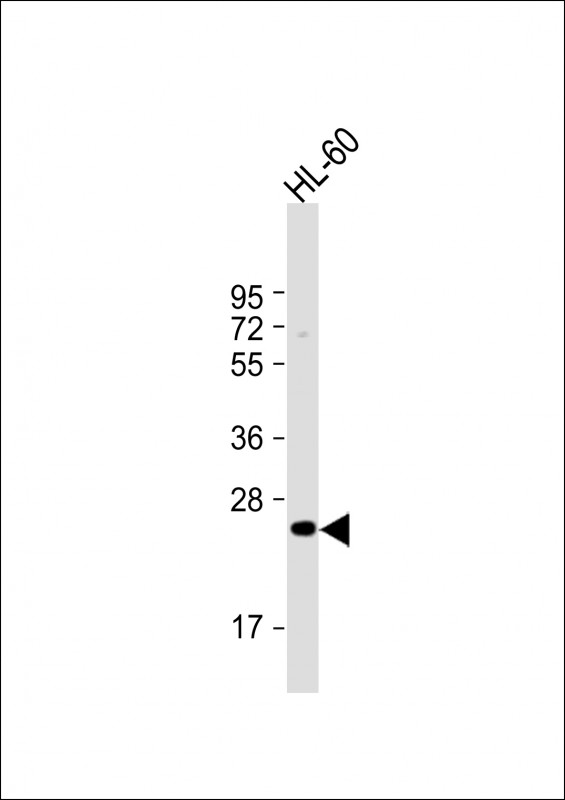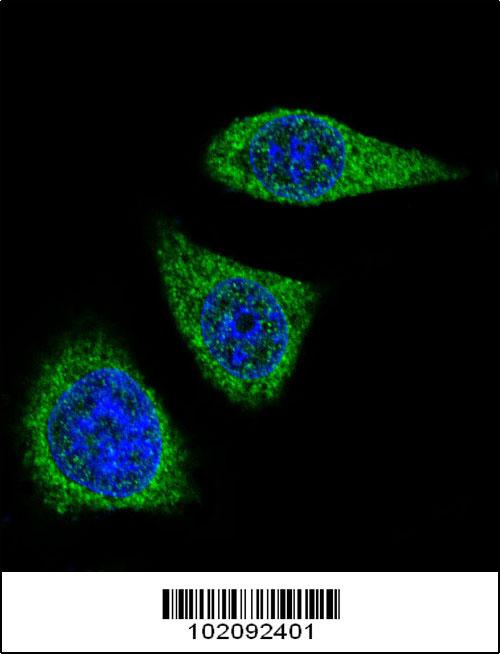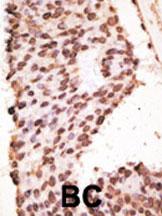


| WB | 1/1000 | Human,Mouse,Rat |
| IF | 咨询技术 | Human,Mouse,Rat |
| IHC | 1/100-1/500 | Human,Mouse,Rat |
| ICC | 1/10-1/50 | Human,Mouse,Rat |
| FCM | 咨询技术 | Human,Mouse,Rat |
| Elisa | 咨询技术 | Human,Mouse,Rat |
| Aliases | Matrilysin, Matrin, Matrix metalloproteinase-7, MMP-7, Pump-1 protease, Uterine metalloproteinase, MMP7, MPSL1, PUMP1 |
| Entrez GeneID | 4316 |
| WB Predicted band size | 29.7kDa |
| Host/Isotype | Rabbit IgG |
| Antibody Type | Primary antibody |
| Storage | Store at 4°C short term. Aliquot and store at -20°C long term. Avoid freeze/thaw cycles. |
| Species Reactivity | Human |
| Immunogen | This MMP7 antibody is generated from rabbits immunized with a KLH conjugated synthetic peptide between 117-146 amino acids from the Central region of human MMP7. |
| Formulation | Purified antibody in PBS with 0.05% sodium azide,1%BSA and 50% glycerol.prepared by Saturated Ammonium Sulfate (SAS) . |
+ +
以下是3篇与MMP7抗体相关的模拟参考文献(内容基于学术背景知识,建议通过PubMed或Google Scholar核实具体文献):
---
1. **文献名称**: "Matrix metalloproteinase-7 (MMP7) as a novel biomarker in colorectal cancer"
**作者**: Li Y, et al.
**摘要**: 研究报道了MMP7抗体在结直肠癌组织中的高表达,并通过免疫组化分析证实其与肿瘤侵袭性和不良预后的相关性,提示MMP7可作为潜在诊断标志物。
2. **文献名称**: "Targeting MMP7 with a therapeutic antibody inhibits pulmonary fibrosis in murine models"
**作者**: Suzuki R, et al.
**摘要**: 该研究开发了一种靶向MMP7的单克隆抗体,在小鼠肺纤维化模型中显示其能显著减少胶原沉积和炎症反应,为纤维化疾病治疗提供新策略。
3. **文献名称**: "MMP7-mediated modulation of intestinal barrier dysfunction in inflammatory bowel disease"
**作者**: Garg P, et al.
**摘要**: 通过阻断MMP7抗体实验,揭示了MMP7在破坏肠上皮紧密连接中的作用,并证明抑制MMP7可减轻小鼠结肠炎模型的病理损伤。
---
如需具体文献,建议通过关键词 **"MMP7 antibody" + "biomarker/therapy/fibrosis/cancer"** 在学术平台检索最新研究。
Matrix metalloproteinase-7 (MMP7), also known as matrilysin, is a member of the zinc-dependent endopeptidase family involved in extracellular matrix (ECM) remodeling. It plays critical roles in physiological processes like tissue repair and pathological conditions such as cancer progression, inflammation, and fibrosis. MMP7 is secreted as an inactive zymogen and activated via proteolytic cleavage. Unlike other MMPs, it has a compact structure lacking a hemopexin domain, enabling it to degrade a broad spectrum of substrates, including collagen IV, fibronectin, and proteoglycans, while also processing cytokines and cell-surface receptors.
MMP7 antibodies are essential tools for detecting and quantifying this enzyme in research and diagnostics. They are widely used in techniques like Western blotting, immunohistochemistry, and ELISA to study MMP7 expression patterns in diseases. Overexpression of MMP7 is associated with tumor invasion, metastasis, and poor prognosis in cancers (e.g., colorectal, pancreatic, and ovarian), making it a potential biomarker and therapeutic target. Antibodies targeting MMP7 also aid in exploring its role in inflammatory bowel disease, atherosclerosis, and fibrosis.
Therapeutic MMP7 inhibitors and neutralizing antibodies are under investigation to block its ECM-degrading activity, offering promise for cancer and inflammatory therapies. However, challenges remain in ensuring specificity, as cross-reactivity with other MMPs may occur. Ongoing research focuses on refining antibody design and understanding MMP7's dual roles in tissue homeostasis versus disease progression.
×